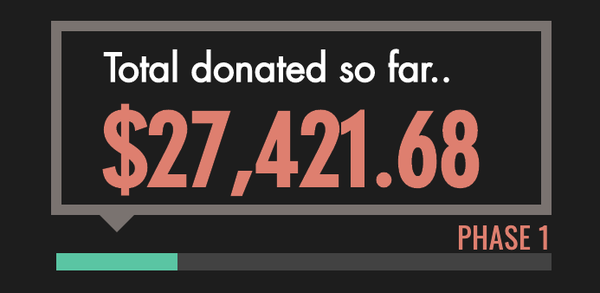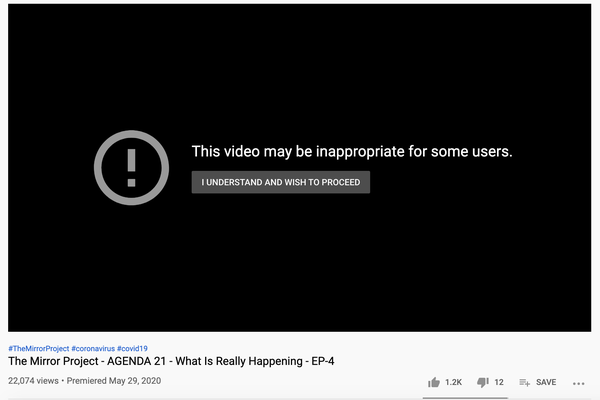COVID-19: PayPal shuts down conspiracy theorist’s crowdfunding account
- PayPal has shut down an account used by conspiracy theory group ‘The Mirror Project’ to fundraise almost $30,000 from supporters.
- YouTube says the project’s videos don’t breach its community guidelines, and they remain up on its site.
- The organization has earned more than 250,000 views with misleading videos claiming the COVID-19 pandemic was organized.
- The differing approaches illustrate that tech firms don’t have a consistent approach to or even definition of misinformation.
- Visit Business Insider’s homepage for more stories.
Payments giant PayPal has shut down an account used by an online conspiracy theorist to crowdfund almost $30,000 while spreading disinformation about COVID-19.
Since uploading its first video to YouTube in May, “the Mirror Project” has garnered more than 250,000 views and 13,000 subscribers, while raising a total of $27,421 through online donations.
The organization’s channel consists of slickly edited videos, incorporating stock footage and eerie music, over which an unnamed narrator claims “the evidence that [the COVID-19 pandemic] is by design is overwhelming”, drawing on debunked conspiracy theories involving Bill Gates, George Soros, vaccines, the UN, and more.
YouTube added a warning to at least one of the Project’s videos, stating it “may be inappropriate for some users”.
In the video, the narrator cites the Agenda 21 conspiracy theory, claiming the UN is overseeing a “controlled collapse of our economy” under the guise of sustainability and development.

In another video, posted on June 8, the narrator suggests billionaire investor Soros is secretly funding the antifa movement, before claiming the Black Lives Matter protests were orchestrated by shady elites as a precursor to governments declaring martial law.
In a statement sent to Business Insider, a PayPal spokesperson told Business Insider it would not allow its services to be “used to spread disinformation and conspiracy theories that may be harmful to public health”.
However, YouTube said the organization’s videos weren’t in breach of its community guidelines.
The Mirror Project’s videos deliberately walk the line when it comes to breaking YouTube’s rules on misinformation.
In one clip, the narrator tells viewers he will “avoid the use of some words that are deemed controversial according to YouTube policies nowadays”, before expressing skepticism around the effectiveness of masks, lockdown measures, and vaccines.

“We reviewed a sample set of videos on the channel set over by Business Insider and none of those videos violated our Community Guidelines,” a YouTube spokesperson said. “Our teams have manually reviewed and removed over 200,000 videos related to dangerous or misleading COVID-19 information since early February.”
The differing approaches illustrate the inconsistency between tech platforms’ definition of misinformation and conspiracy theories. It also illustrates how difficult it is to keep up with conspiracists’ changing tactics.
Tristan Hotham, founder of the Social Media Research Centre, said: “When you put up new barriers, people will still get through them, but the type of person getting through will change.”
“At the end of the day, we’re not dealing with stupid people. Videomaking tools are now so readily accessible, including to despondent young men in their bedrooms, that conspiracists can create content superior to a BBC news report.”
He added: “There’s no fixed means of dealing with misinformation. PayPal and YouTube are just dynamically reacting to events as they occur, while focusing on their respective business models.”
In an email to Business Insider, a Mirror Project organizer by the name of Louie, a self-described TV producer and journalist, said he had deliberately chosen not to reveal his identity: “I would like the focus to be on the content and not individuals [and] I value my privacy.”
Louie said all costs associated with the organization’s website and videos were “privately funded by ourselves, and not taken from the donation pot.”
He confirmed PayPal had shut down the Project’s account last week. Business Insider has requested clarification as to the fate of the $27,421.
*** This article has been archived for your research. The original version from Business Insider can be found here ***


